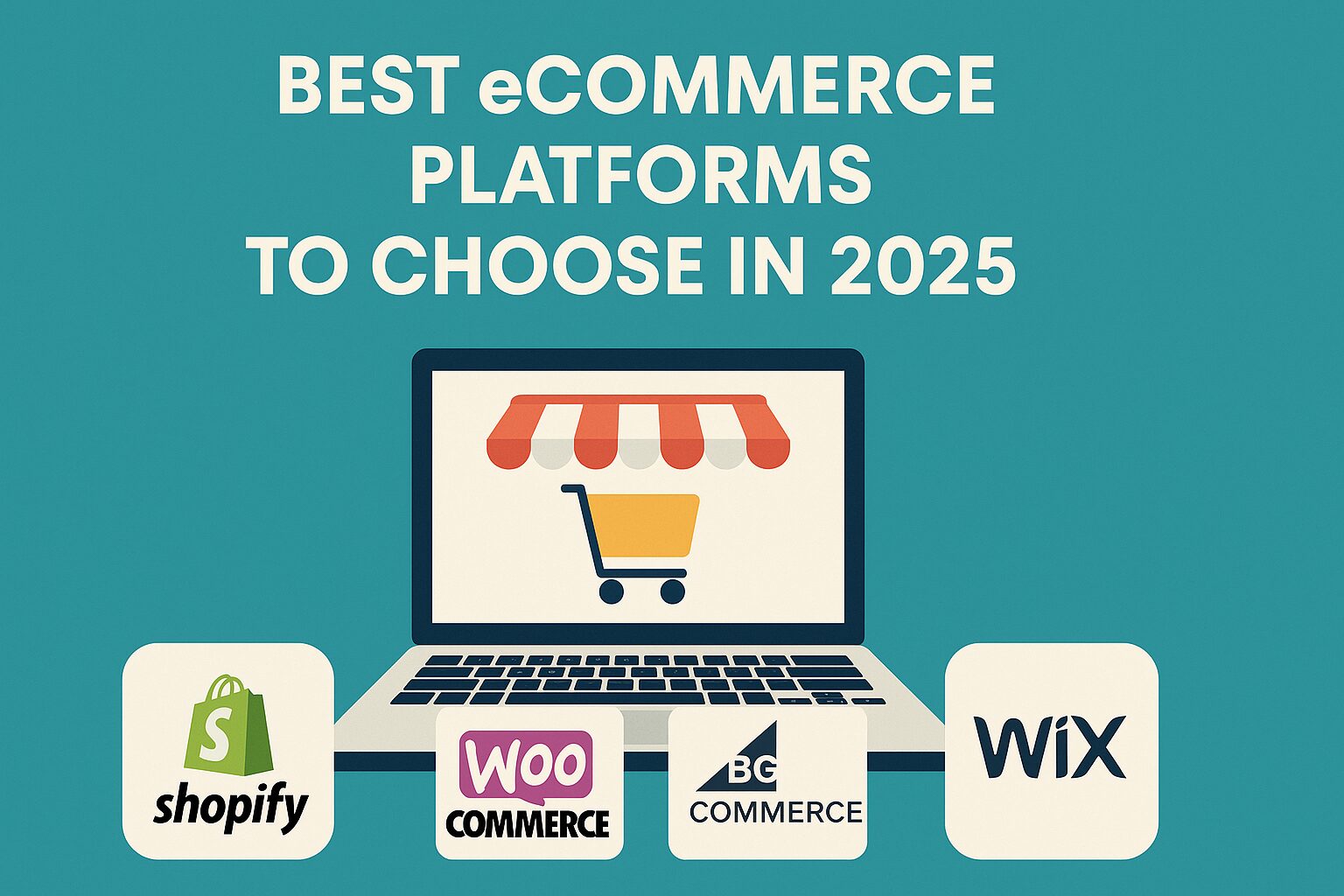In 2025, eCommerce continues to grow at a rapid pace. With global online sales projected to exceed $7 trillion, choosing the right platform for your online store is more important than ever. Whether you’re launching a new business or upgrading your existing store, selecting the right eCommerce platform can determine your success.
In this article, we’ll explore the best eCommerce platforms in 2025, their features, pros and cons, and which one might be the right choice for you.
1. Shopify – Best for Ease of Use
Overview:
Shopify remains a leading eCommerce platform in 2025 due to its user-friendly interface, extensive app marketplace, and excellent customer support. It’s a hosted solution, meaning you don’t have to worry about server management or technical setup.Key Features:
Drag-and-drop store builder
100+ professional themes (free & paid)
Integrated payment gateway (Shopify Payments)
Multi-channel selling (Facebook, Instagram, Amazon)
24/7 customer support
Pros:
Easy to set up for beginners
Wide range of apps and integrations
Reliable hosting and security
Cons:
Monthly fees can add up with apps
Less control over code compared to open-source platforms
Best For:
Small to medium-sized businesses, dropshipping stores, and entrepreneurs who want a quick setup without technical headaches.
2. WooCommerce – Best for WordPress Users
Overview:
WooCommerce is a free, open-source plugin for WordPress that powers millions of online stores worldwide. In 2025, it’s still a top choice for businesses that want full control and customization over their eCommerce site.Key Features:
Free to install (you pay for hosting & extensions)
Fully customizable with themes and plugins
Supports unlimited products and categories
SEO-friendly structure
Large developer community
Pros:
Full ownership of your store
Flexible customization options
Cost-effective for tech-savvy users
Cons:
Requires more technical knowledge
You need to handle hosting and security yourself
Best For:
Businesses already using WordPress or those who want full customization and control over their online store.
3. BigCommerce – Best for Scalability
Overview:
BigCommerce is known for its robust features and scalability, making it an excellent choice for growing businesses. It offers more built-in features than Shopify, which can reduce the need for third-party apps.Key Features:
No transaction fees
Advanced SEO tools
Multi-channel selling
Large inventory support
Powerful analytics dashboard
Pros:
Great for large product catalogs
Built-in features save money on apps
Strong SEO capabilities
Cons:
Slightly steeper learning curve than Shopify
Annual sales limits per plan
Best For:
Medium to large businesses that need a platform capable of handling high-volume sales.
4. Wix eCommerce – Best for Small Businesses & Beginners
Overview:
Wix has grown into a competitive eCommerce platform thanks to its intuitive drag-and-drop editor and improved eCommerce capabilities. In 2025, Wix is ideal for small businesses and creatives.Key Features:
Easy-to-use website builder
500+ templates
Integrated payments and shipping tools
App marketplace for added functionality
Mobile optimization
Pros:
Beginner-friendly design tools
Affordable pricing plans
Quick store setup
Cons:
Limited scalability for large stores
Less advanced features compared to Shopify or BigCommerce
Best For:
Small businesses, freelancers, and creatives who want a beautiful and functional store without coding.
5. Squarespace – Best for Design-Focused Stores
Overview:
Squarespace stands out for its sleek and modern templates, perfect for businesses that prioritize visual presentation. It’s popular among designers, photographers, and premium brands.Key Features:
Award-winning templates
Built-in blogging tools
Inventory and order management
Integrated analytics
Secure checkout
Pros:
Stunning, mobile-responsive designs
Great for branding and storytelling
All-in-one platform
Cons:
Limited third-party app integrations
Fewer payment options compared to Shopify
Best For:
Creative professionals and premium brands looking for a visually appealing online store.
How to Choose the Best eCommerce Platform in 2025
When selecting an eCommerce platform, consider the following factors:
Ease of Use – If you’re not tech-savvy, choose a platform with a simple interface.
Budget – Compare monthly fees, transaction fees, and app costs.
Scalability – Make sure the platform can grow with your business.
Customization – Decide if you want a fully customizable store or a ready-made solution.
SEO & Marketing Tools – Good SEO tools help your store get found online.
Final Thoughts
In 2025, there’s no one-size-fits-all eCommerce platform. Shopify is perfect for ease of use, WooCommerce offers flexibility and control, BigCommerce is ideal for scaling, Wix is beginner-friendly, and Squarespace excels in design.
Choosing the right platform depends on your budget, technical skills, and business goals. By aligning your needs with the strengths of these platforms, you’ll be on your way to building a successful online store in 2025.







